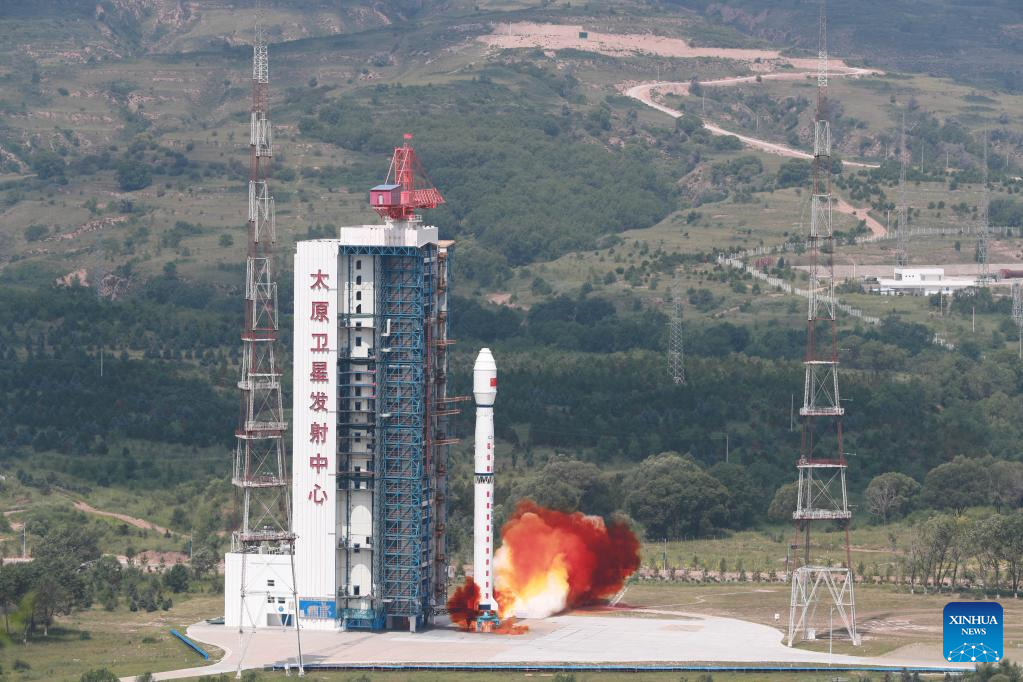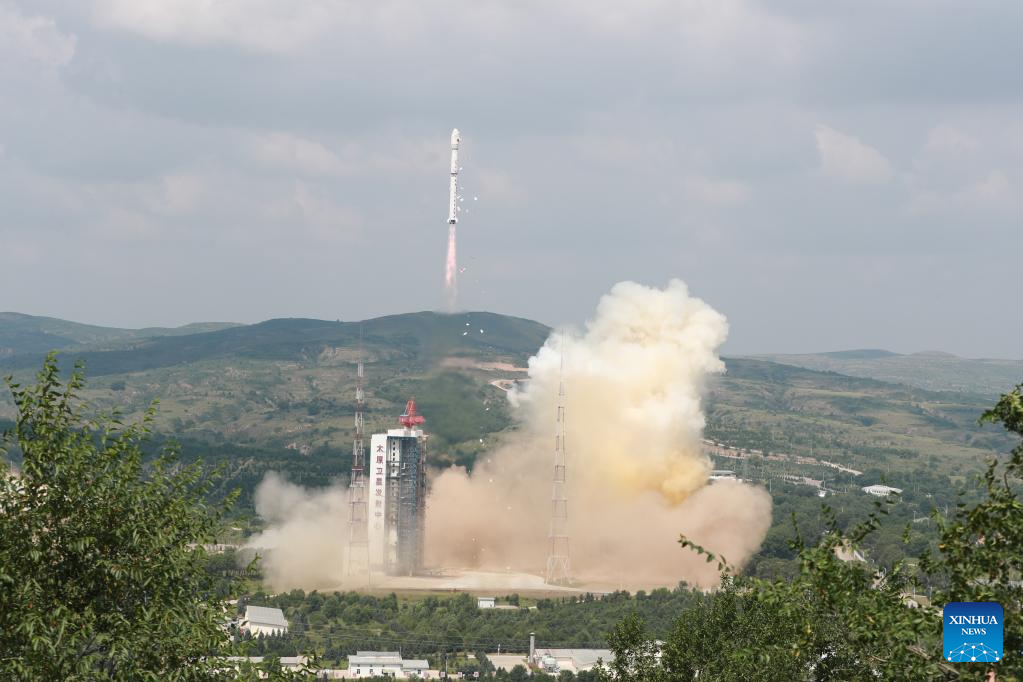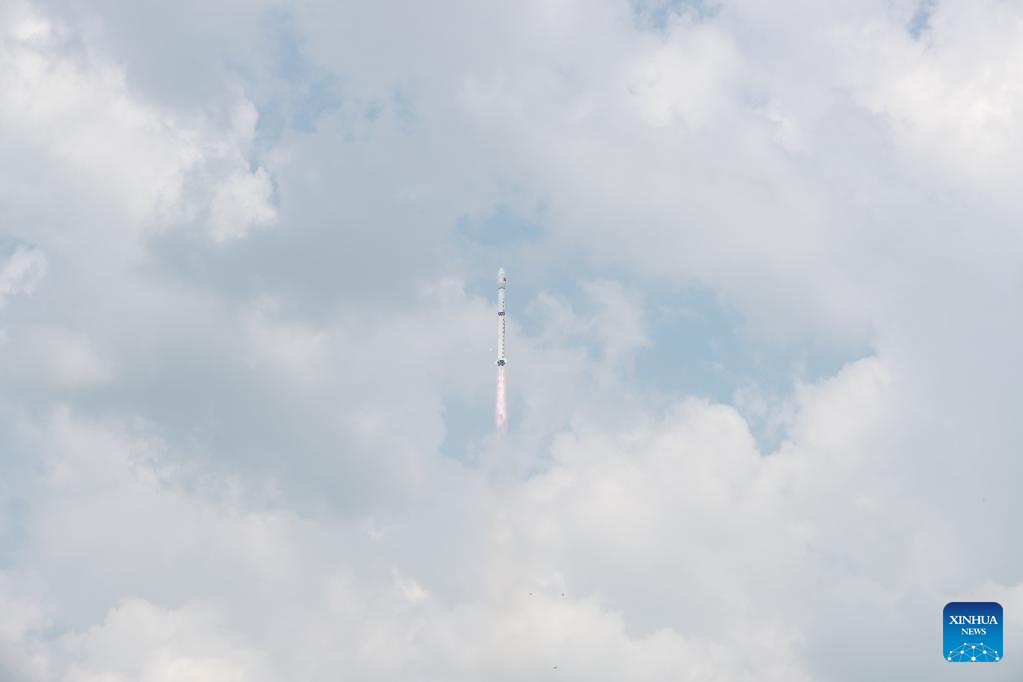China launches terrestrial ecosystem carbon monitoring satellite

A Long March-4B carrier rocket carrying a terrestrial ecosystem carbon monitoring satellite and two other satellites blasts off from the Taiyuan Satellite Launch Center in north China's Shanxi Province on Aug. 4, 2022. The satellites were launched at 11:08 a.m. (Beijing Time) and entered the planned orbit successfully. (Photo by Zheng Bin/Xinhua)
TAIYUAN, Aug. 4 (Xinhua) -- China successfully launched a terrestrial ecosystem carbon monitoring satellite and two other satellites from the Taiyuan Satellite Launch Center in north China's Shanxi Province Thursday.
The satellites were launched at 11:08 a.m. (Beijing Time) by a Long March-4B carrier rocket and entered the planned orbit successfully.
The carbon monitoring satellite is mainly used for terrestrial ecosystem carbon monitoring, the surveying and monitoring of terrestrial ecology and resource, and major national ecological projects monitoring and evaluation.
It will also provide operational support and research services in fields such as environmental protection, surveying and mapping, meteorology, agriculture, and disaster reduction.
The satellite can detect and measure vegetation biomass, atmospheric aerosol and chlorophyll fluorescence by comprehensive remote sensing means such as laser, multi-angle, multi-spectral, hyperspectral, and polarization.
It can also obtain the multi-factor remote sensing information of global forest carbon sinks, improve the efficiency and accuracy of carbon sink measurement, and provide support for China's carbon peaking and neutralization efforts.
Other satellites launched in this mission include one that collects information related to global ship navigation and flight status, and another that provides services for students to participate in space science research and engineering practice.
This launch marked the 430th mission for the Long March series carrier rockets. ■

A Long March-4B carrier rocket carrying a terrestrial ecosystem carbon monitoring satellite and two other satellites blasts off from the Taiyuan Satellite Launch Center in north China's Shanxi Province on Aug. 4, 2022. The satellites were launched at 11:08 a.m. (Beijing Time) and entered the planned orbit successfully. (Photo by Zheng Bin/Xinhua)

A Long March-4B carrier rocket carrying a terrestrial ecosystem carbon monitoring satellite and two other satellites blasts off from the Taiyuan Satellite Launch Center in north China's Shanxi Province on Aug. 4, 2022. The satellites were launched at 11:08 a.m. (Beijing Time) and entered the planned orbit successfully. (Photo by Zheng Bin/Xinhua)